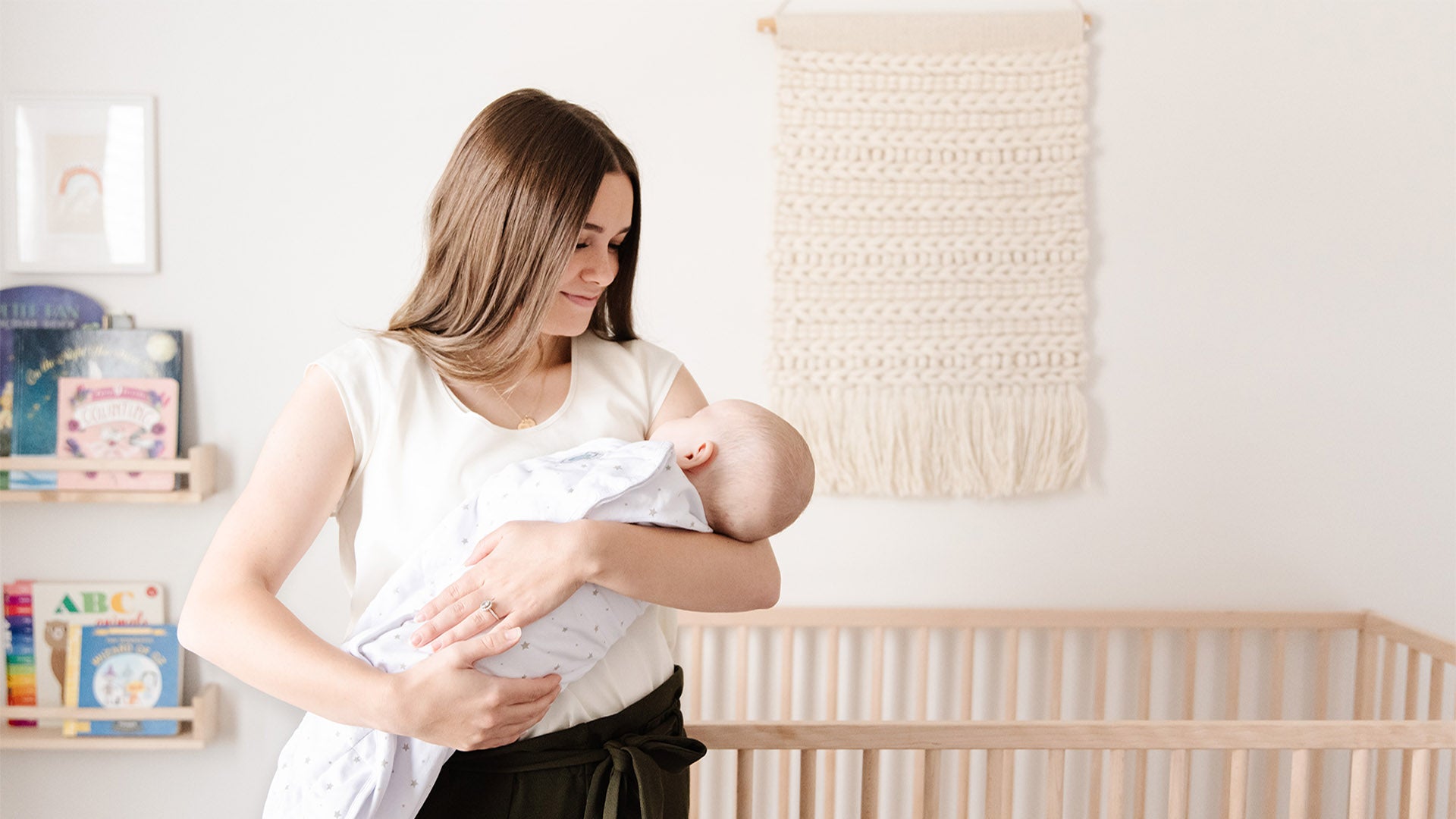Our Tips for Dealing with Newborn Sleep Deprivation
No matter what age a person is, sleep is essential for a healthy life. But most new parents will tell you that they get no sleep with newborn baby in the house. Sleep deprivation is a real issue for parents and experts say that most parents won’t sleep like they did pre-baby for around six years! Don’t let this scare you, though…
Good, quality sleep is needed for cognitive reasoning, social skills, and overall wellbeing, including brain and body development in infancy. Sleep is also the time when your baby’s brain processes all of the new and exciting things they experience throughout the day – which is pretty much everything from the sky, the floor, even their own hands! But if you’re curious how to deal with sleep deprivation after baby arrives, keep reading for some tips on how to get through those rough, early weeks of having inconsistent sleep.
How long are you sleep deprived after baby arrives?
Most experts agree that it will take around 6 years before “normal” sleep resumes after bringing your newborn home from the hospital. But here are some tips to create better sleep for you and your baby:
- Sleep when baby sleeps! This sounds easy enough, but every parent gets distracted with their to-do list. Try not to. Your baby will initially sleep in 3 hour stretches throughout the day. You will likely need those same 3 hours to catch up on your sleep, and there’s no better way to take care of yourself than by catching some much needed zzz’s.
- Have a sleep routine. While this may seem difficult in those early first days and weeks, try to go to sleep at the same time every night, and wake up the same time every morning, even if you’re waking throughout the night to feed your baby.
- Create a calm sleep environment. This means having a designated place to sleep for all sleeps. Co-sleeper or crib for baby, and a bed for you. Also, keep the room light during the day, but dark at night. Wind down at nighttime, play some soft music or a white noise machine. Relax, if you can!
- Ask for help. Your partner, your friend, your family, everyone wants to help – let them! Even if it means they watch the baby while you shower, empty the dishwasher, or take a nap, they will be happy knowing they’ve given you the break you need.
- Sleep training. By the time your infant is around 4 months old, they will likely be sleeping for longer stretches. This is a great time to introduce sleep training, which when done correctly, means that you’ll get more sleep, too.
- Fresh air. Taking a walk outside, even if it’s just around the block, can do wonders for your state of mind. Even when it’s the last thing you want to do, the fresh air and sunlight can help your equilibrium.
How much sleep can you survive on with a newborn?
The truth is, most parents don’t want to miss a single thing about their newborn. Every yawn, stretch and gurgle can be met with awe. But it’s important that parents sleep when they can because sleep deprivation after having a baby is a very real thing. This is why it’s encouraged to sleep when your baby sleeps.
Most parents sleep on average between 3-5 hours a night those first few weeks of bringing their baby home. But studies suggest that even sleeping between 90 and 110 minutes gives your body time to complete one full sleep cycle – that’s huge! Even a 20-minute nap is better than no sleep at all.
What will help my newborn sleep?
Those first few weeks of your newborn’s life are known as the fourth trimester. It’s the period of time baby needs to get used to life outside of the womb where every single one of their needs were met easily and effortlessly. Swaddling is a technique that doctors and childcare experts swear by to mimic life inside the womb. The Dreamland Baby weighted swaddle does just that thanks to the gentle weight that has been proven to help calm your baby with deep pressure stimulation so they can relax and sleep soundly.
How do you fight sleep deprivation with a newborn?
If you’re still wondering how to deal with newborn sleep deprivation, consider practicing good sleep hygiene to the best of your ability considering you have a new person in the house who is completely dependent on you for everything! According to HopkinsMedicine.org, good sleep hygiene consists of:
- Avoiding caffeine: This stimulant can interfere with your sleep cycle.
- Not using electronics before bed: The light from electronic devices can confuse your body clock.
- Sticking to a regular sleep schedule: As difficult as this sounds as a new parent, try to turn in and wake up at the same time every day.
Further studies suggest that having the baby’s sleep space (crib or bassinet) near your own bed will make it easier to care for your baby when they wake at night. And as tempting as it is to bring baby into bed with you, the American Academy of Pediatrics (AAP) advises against it because of the risks of SIDS and/or accidental suffocation.
Will I ever sleep again after having kids?
Most parents fear that they will never, ever, get a full, solid and full night’s sleep ever again! Especially when they are in the throes of those first few weeks and months home with their newborn. It will take some time to establish a healthy sleep routine but yes, you will sleep again, and sleep well.
Keep in mind that a nighttime routine is an important part of establishing sleep cues for baby. A sleep cue is something that is soothing and comforting for helping baby get to sleep, and also when your baby wakes up in the middle of the night. For newborns, many parents find that a white noise machine or soft music aids in the nighttime routine. The Dream weighted swaddle and sleep sack also provide a great cue that it’s time to venture off to dreamland.



Share:
How To Get A Newborn To Sleep In A Bassinet
Should I Swaddle My Newborn Baby During The Day?